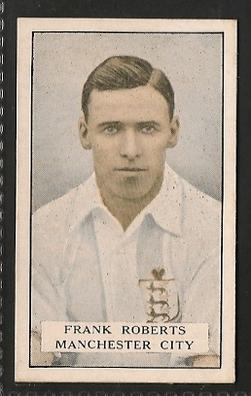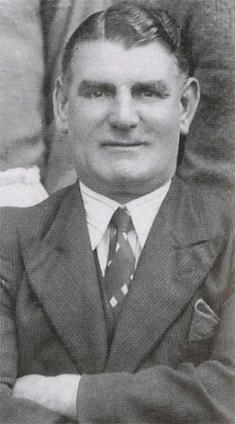Related Research Articles

The following events occurred in world sport in the year 1874.

Peter Reid is an English football manager, pundit and former player.
The 2004–05 season was the 125th season of competitive football in England.

Frank Stewart Worthington was an English footballer who played as a forward. Worthington was born into a footballing family in Shelf, near Halifax, West Riding of Yorkshire. Both of his parents had played the game and his two older brothers, Dave and Bob, became professional footballers, both began their careers with Halifax Town. His nephew Gary was also a professional footballer.
William Alix "Willie" Morgan MBE is a Scottish former professional footballer.

Owen Columba Coyle is a professional football manager and former player who is currently the head coach of Indian Super League club Chennaiyin. He played as a striker for several clubs in England and Scotland, and made one appearance for the Republic of Ireland national team.
George Mulhall was a Scottish football player and manager. Born in Falkirk, Mulhall played as an outside left for Aberdeen and Sunderland. He was capped three times for Scotland. He became the manager of Bradford City, Bolton Wanderers and Halifax Town.

Anthony Philip Coton is an English football coach and former footballer who is a goalkeeper scout for Premier League side Manchester United.
The 1957–58 season was the 78th season of competitive football in England.

Frank Roberts was an English professional footballer who played for Manchester City between 1922 and 1928. He could play either as an inside forward or a centre forward.
Michael Doyle was an English footballer, who spent most of his career with Manchester City and also played for Stoke City, Bolton Wanderers and Rochdale.

Joseph Smith was an English professional football player and manager. He is eleventh on the list of England's top-flight goal scorers, scoring 243 league goals. He was manager of Blackpool for 23 years and guided them to victory in the 1953 FA Cup final, the only time they have won the competition since their 1887 inception.

Richard Henry Pym was an English footballer best known for being the Bolton Wanderers goalkeeper at the first ever FA Cup final to be played at Wembley Stadium in 1923.
Brian Pilkington was an English professional footballer, who played as a left winger.
Frederick Hill was an English footballer who played at both professional and international levels as an inside forward.
John Joseph Cassidy was a Scottish professional footballer who played as an inside left or centre forward. His career was mainly associated with Celtic – he played for the club between 1912 and 1924, although his football career was interrupted by the First World War, during which he served in the British Army in the Black Watch 1/7th Fife Battalion and won the Military Medal, which led to him being nicknamed "Trooper Joe". He also played for several other Scottish clubs, in England with Bolton Wanderers, in Wales with Cardiff City, and on both sides of the border in Ireland with Ballymena and Dundalk. He represented Scotland four times.
John Herron is a Scottish professional footballer who plays as a midfielder for Irish Football League side Ballymena United.
The 1885–86 season was the 13th Scottish football season in which Dumbarton competed at a national level.
The 1887–88 season was the 15th Scottish football season in which Dumbarton competed at a national level.
The 2021–22 season is Bolton Wanderers's 133rd season in their history. It covers the period from 1 July 2021 to 30 June 2022. It was the club's first season back in League One following their immediate promotion from League Two the previous season.
References
- 1 2 3 4 Kent, Jeff (1996). Port Vale Personalities. Witan Books. p. 87. ISBN 0-9529152-0-0.
- ↑ "Sunderland AFC - Statistics, History and Records - from TheStatCat". www.thestatcat.co.uk. Retrieved 1 November 2022.
- 1 2 3 A.P. – the one who came in from the cold, Scots Football Worldwide
- ↑ Harricus (22 August 1921). "First Division prospects. Bolton Wanderers". Athletic News. Manchester. p. 5.
- ↑ "Only shown are players with surnames beginning with the letter D". bwfcstats.com. Archived from the original on 15 March 2012. Retrieved 18 December 2012.
- ↑ Dart, James (5 April 2006). "Players who have been capped by more than one country". The Guardian. Retrieved 15 May 2009.
- ↑ "28 Feb 1914". scottishfa.co.uk. Retrieved 18 December 2012.
- ↑ "14 Mar 1914". scottishfa.co.uk. Retrieved 18 December 2012.
- ↑ "04 Apr 1914". scottishfa.co.uk. Retrieved 18 December 2012.
- ↑ "Sat 22 Mar 1919 Scotland 2 Ireland 1". londonhearts.com. London Hearts Supporters' Club. Retrieved 1 April 2017.
- ↑ "13 Mar 1920". scottishfa.co.uk. Retrieved 18 December 2012.
- ↑ "10 Apr 1920". scottishfa.co.uk. Retrieved 18 December 2012.
- ↑ "04 Mar 1922". scottishfa.co.uk. Retrieved 18 December 2012.
- ↑ Alex Donaldson at the English National Football Archive (subscription required)
- ↑ "Alex Donaldson". national-football-teams.com. Retrieved 7 August 2015.